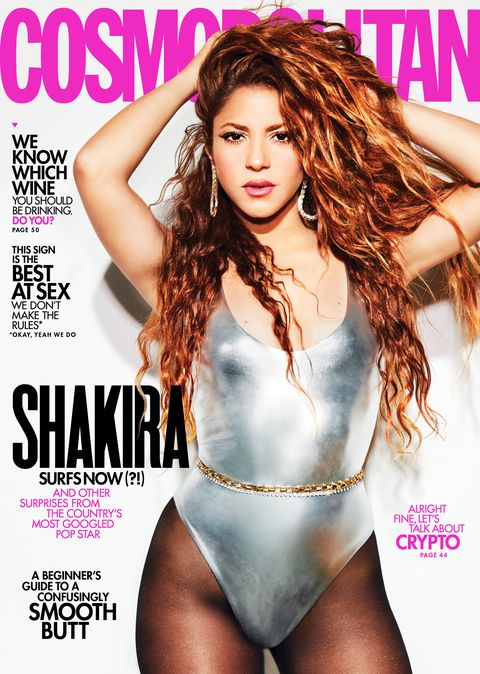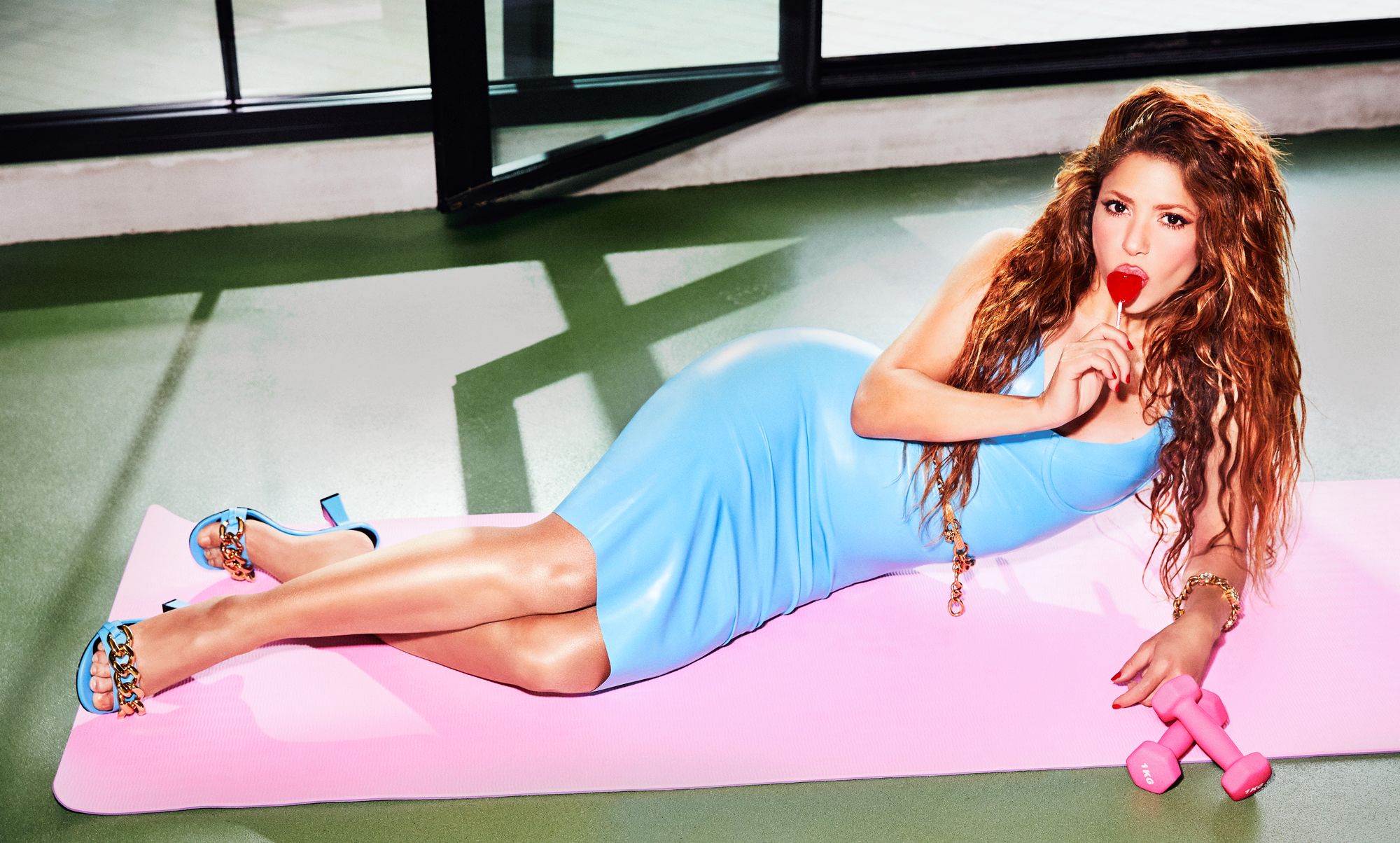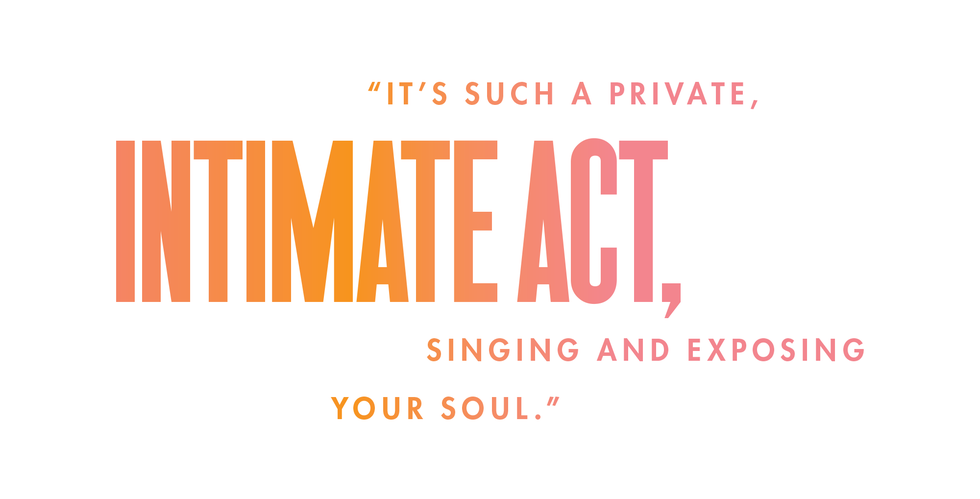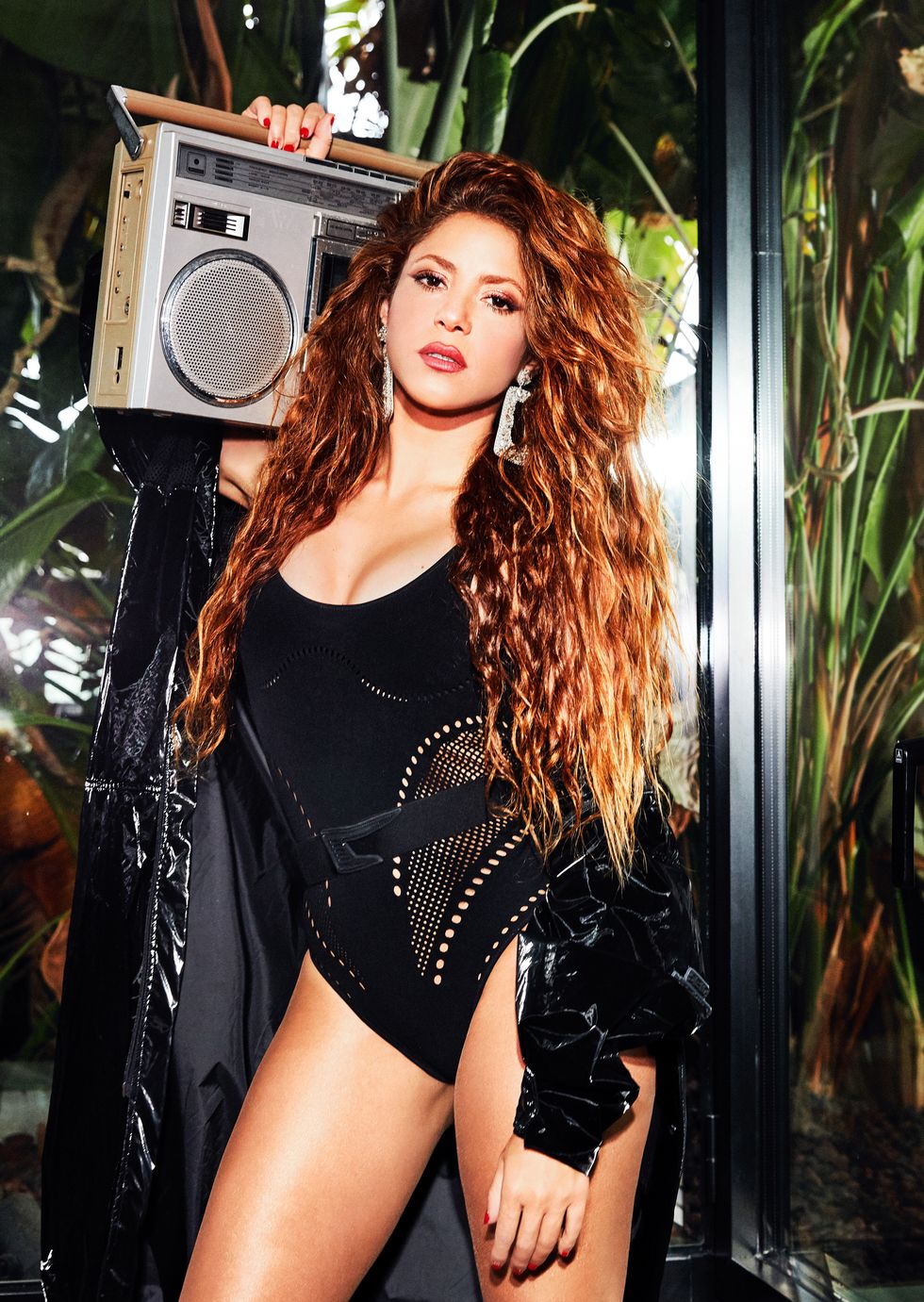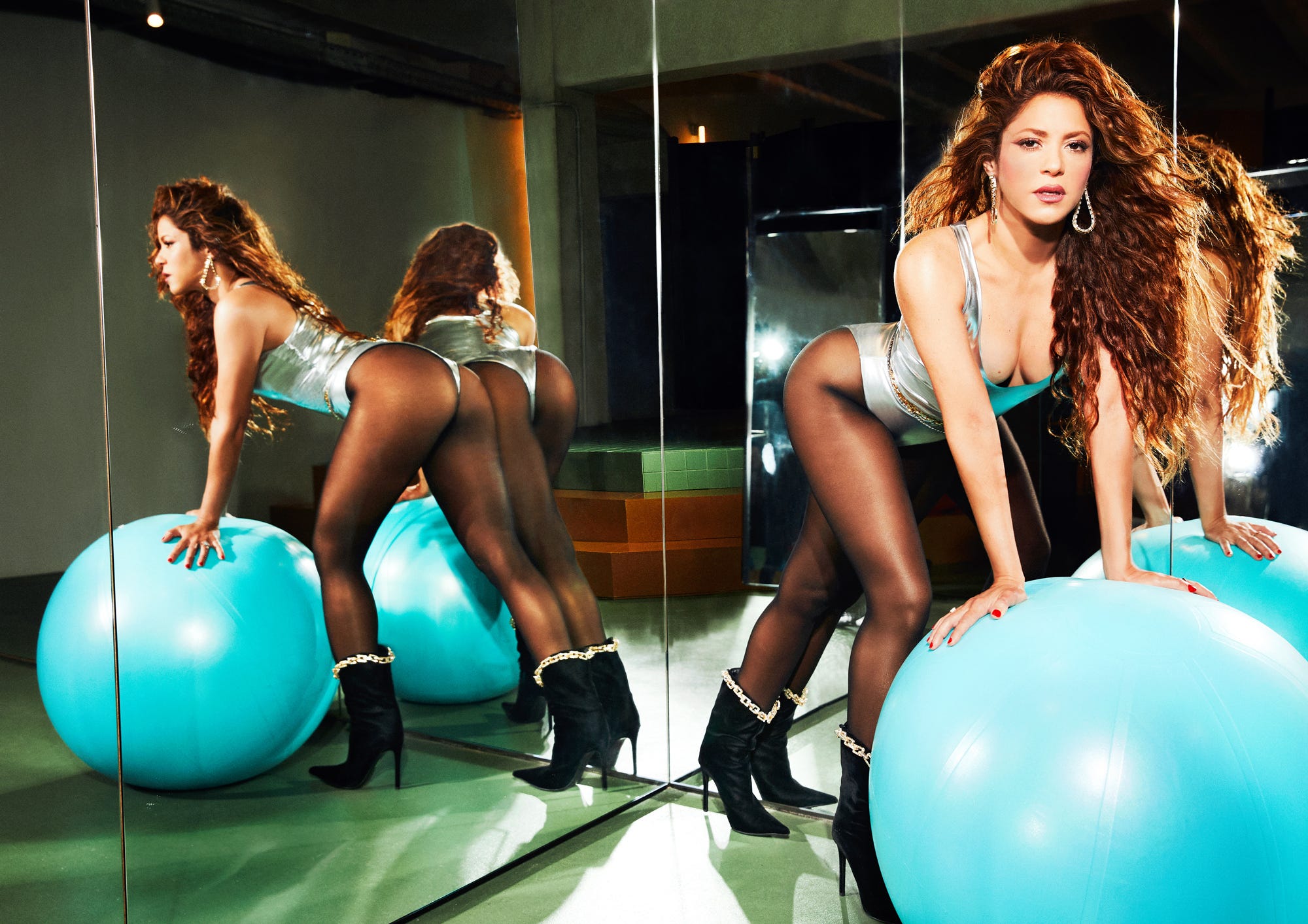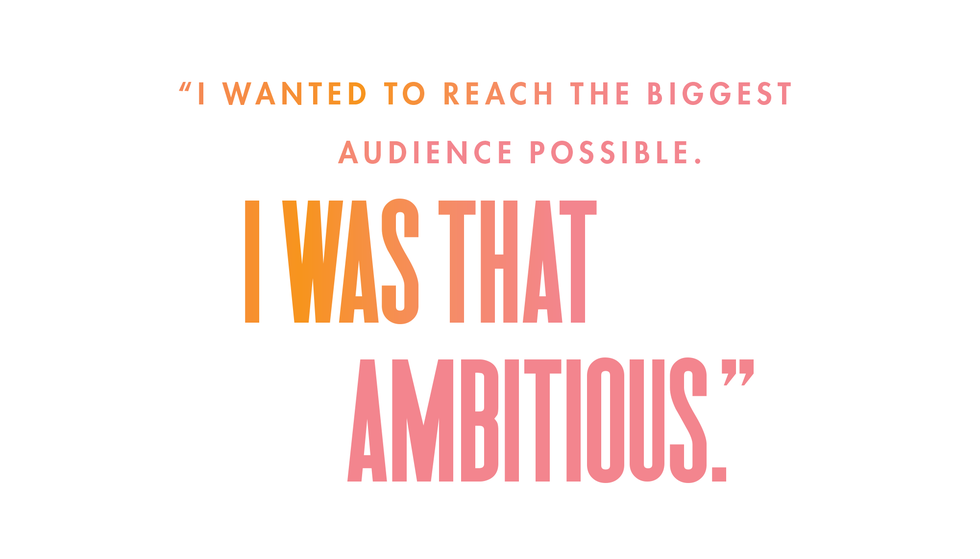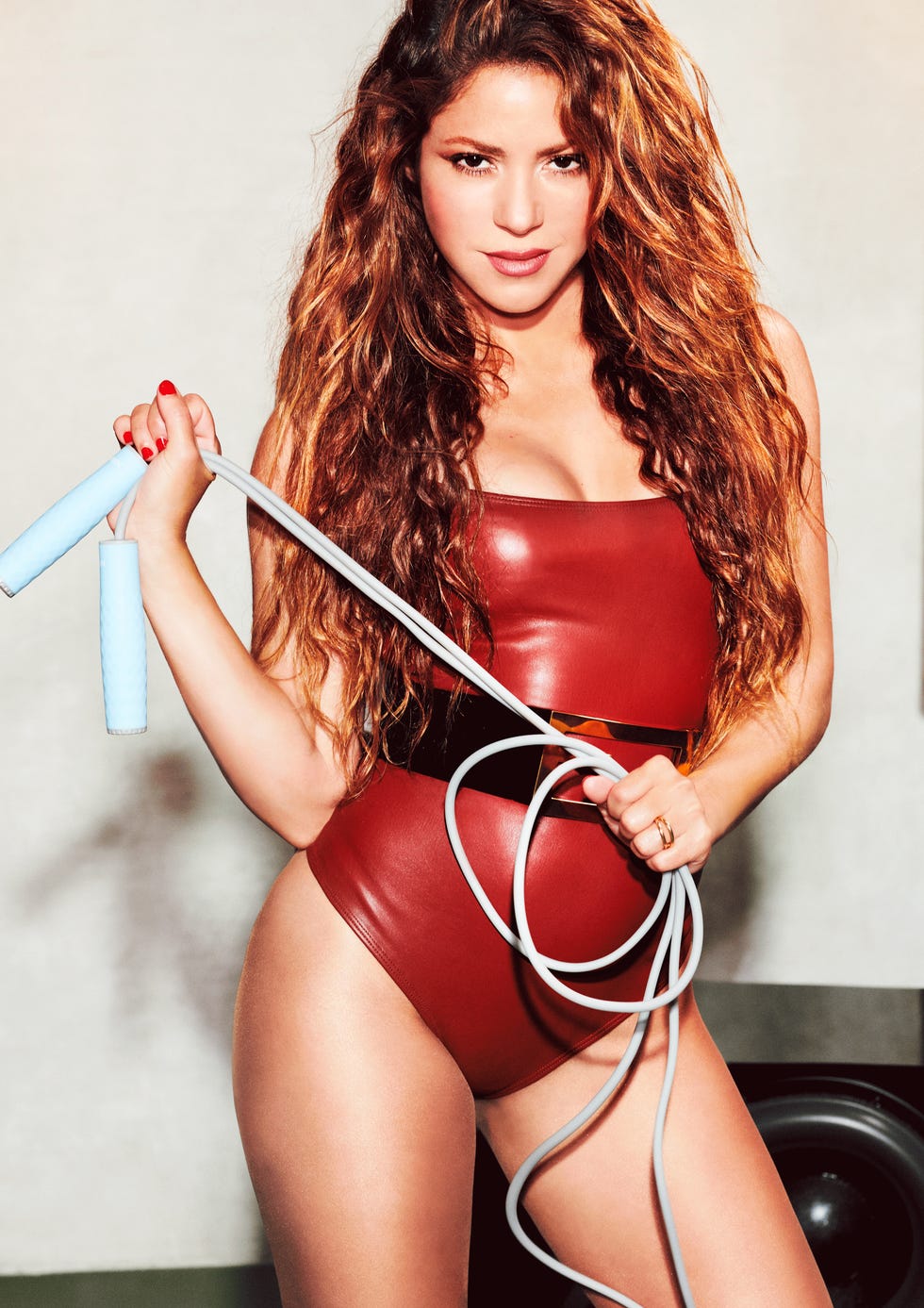
Shakira has always made me want to be in my body, fully and joyfully. She’s one of the few artists who has true cross-generational cred—from 12-year-old girls who memorize her choreography to my 85-year-old mom who raves about her philanthropy.Shakira has always made me want to be in my body, fully and joyfully. She’s one of the few artists who has true cross-generational cred—from 12-year-old girls who memorize her choreography to my 85-year-old mom who raves about her philanthropy.
The guttural power in her voice and her movement—the swaying and undulating and side-hip-thrusting that could push you over a ledge—have helped her sell more than 80 million records, win 14 Grammys, and earn more than 18 billion YouTube views, numbers that will only climb higher when her new album gets released (date TBD, but soon!).
She’s also always felt so real. So powerful, so confident. Which is why it shocked me to hear her talk about her insecurities—although those immediately felt real too. I’ve covered Latino issues as a journalist for decades and I have a good BS detector; trust me when I say Shakira sets off no alarms. During our interview, she was thoughtful, present, and deliberate, not afraid to admit she’s battling the same demons we all are.
I also never realized how many times Shakira has been knocked down: from getting teased for being the weird girl in Barranquilla, Colombia, who sang with a vibrato that sounded “like a goat” to, more recently, facing a career-halting crisis when a vascular lesion on her vocal cords nearly caused her to lose her voice permanently. Yet through it all, her deep need to live the alegría (joy) of life has prevailed—even knowing that more challenges could come at any time. Thankfully, she’s always ready.
Maria: I loved prepping for our interview. This morning, at 6 a.m., I was like, Can I body-roll? Can I?
Shakira: You had to practice. For journalism.
Of course. You’re doing all these new things: surfing, skateboarding, studying philosophy. So first, I want to know: Who’s your favorite philosopher?
Socrates, of course. I think asking questions is the most ingenious way to discover the truth—if there is any truth to things. There can be many truths, like two sides of a coin. I often try to apply that to the upbringing of my kids. I’m a tiger mom and a helicopter mom and all these different moms. [Laughs.]
Is it hard to shut off being “the producer” as a mom or as a partner?
Yeah. That’s when having a partner who’s completely opposite in that sense comes in handy. My mind never stops. I dream about my kids. I worry about them constantly. I torture my poor husband. Well, he’s not really my…I don’t know what to call him!
Compañero?
He’s my baby daddy. I torture him about every issue I see with my kids.
I’m thinking about your parents, because it was your dad, mostly, right, who encouraged your creative spark? Without your dad and your family behind you, we wouldn’t have Shakira, would we?
I would be doing a different job. I’d probably be a doctor or an archaeologist. I always wanted to make my dad proud and wanted to please him. Even when it was a total drag to perform in front of my family.
You didn’t like it?!
I was shy. To this day, I find it hard to sing to a small group. It’s embarrassing. I feel a little silly, a little ridiculous, and a little naked. The stage and crowd and lights and applause of the people dress me. Once you take that away and you’re there with your voice—it’s such a private, intimate act, the one of singing and exposing your soul. It’s not a coincidence that people sing in the shower most of the time, because that’s when they’re completely naked and uninhibited and alone. When my dad discovered my voice, he was just proud and wanted to share what his little girl could do.
It’s a very Latina thing, that we want to please our dads. How has patriarchy been part of your life?
The male standpoint prevailed in my house early on. It was another time—a different generation with a different outlook. I always had a close relationship with my mom and dad. But in a way, I was the daughter that rebelled, because my dad planned on being very protective. I stood up for myself. When I was 12, I liked a boy and I was like, “I’m going to date this guy.” He’s like, “What are you talking about? You’re 12.” I’m like, “I’m going to date him outside of the house, or I can bring him to your house. What do you prefer?” He said, “Bring him over.”
So Shakira was shy, but Shakira was also like, “I know what I want and I’m encouraged to say what I want.”
I’ve always had a strong will. The nuns at my school told me, “¡Es que eres voluntariosa!” (“You are willful!”) I’m like, That sounds like a good thing to be. I think they were trying to say I was stubborn: “You want to get your way.” I’m like, Hell yeah, I want to get my way in life. I consider myself a fighter, but at the same time, I feel that I’m not as strong as people think. I’m a little fragile. It’s a weird combination, feeling vulnerable at times and then feeling that I can do it all. I have enormous confidence in the future—faith in life—but a lot of insecurities that make me want to prove myself. A couple of days ago, [my partner] Gerard was like, “How can you think that way and then get so far?” He doesn’t understand the juxtaposition.
I’m right there with you. All the powerful women I’ve interviewed are at some point crying in the shower, feeling completely alone. I think feeling that profound aloneness allows us to take leaps.
Yeah, aloneness—I like that word—is necessary. You can’t create if you’re surrounded by people and stimuli all the time. You need to see yourself in the mirror at times without makeup. And in that vulnerability of your life, that’s when the most honest thoughts surface.
As a woman who’s in her 40s now, there comes this madurez (maturity), right? How are you seeing that in yourself?
I’m the type of person who really needs to genuinely believe in what I do or I’d rather pass. I’m proud of having succeeded on my own terms. When I first came out, there wasn’t really an audience for Latin pop or Latin female pop artists. When I was 15, I started to listen to Nirvana and all the alternative Seattle rock and Metallica. I was exposed to different kinds of influences. I didn’t make the music I made just to please a type of audience or to accommodate a specific need of the market. I did what felt honest. On the flip side, when I entered the U.S. market, I wanted to honor my Latin roots. At the Super Bowl, I wanted to introduce champeta, a street dance that belongs to a virtually unknown corner of my country. I’m always trying to be unafraid through my career. I’ve had a great fan base that has been so loyal. Even when I lost my voice. In that darkest hour of my life, I realized how lucky I was. All those people gave me everything I needed to heal. And I healed. Contrary to what the doctors said.
You didn’t do surgery because you trusted your gut. That’s a lesson too, right?
It was too dangerous. I cried every single day while my voice was gone. I never thought how important having a voice was until I lost it. I never stopped thanking my voice when it was back.
I think that’s part of the message we get from you—you really trust your way of doing things. It’s led you to be successful…but also very human. When we look at all you’ve done and then hear you say, “I don’t know if I’m good enough,” that touches all of us.
I’m constantly doubting myself.
Maybe doubting yourself also allows a certain level of humility. If you have such a huge ego that you have no doubts…
Yeah, you’re done. Also, there are artists who always need a crowd. I don’t need that. I like disappearing for a while and just being a person. The outfit my kids love the most is my PJs. I’m glad they’re not going to remember their mom like the big pop star onstage covered in glitter.
I’m going to go back to your early career. Was working in English always a goal?
First I had to play small gigs in my hometown starting when I was about 10 years old. I would perform at office parties, quinceañeras, bar mitzvahs—every-freaking-where. It took a lot of work to be noticed. I wanted to reach the biggest audience possible. I was that ambitious. I do feel a little ashamed saying it out loud. From an early age, I really wanted the world. I wanted to share my music with as many people as possible. I wanted everyone to listen to me.
You were so clearly on the scene like, “I’m a proud Colombiana. I have my Lebanese, Arab roots. I’m not afraid to show exactly who I am.” Then all of a sudden, I was like, “What happened that Shakira suddenly went blonde? Was there a pressure to change her look to reach this wider audience?”
No, no. It had absolutely nothing to do with that. I just wanted to see my hair a different way. I changed my hair many different ways throughout my career. I love dark hair. I sometimes miss my super-shiny black, dark hair. It never got to be the same because once you put bleach on your hair, it just never shines the same way.
Do you regret it at all?
I read something, in a compilation of wise advice for young people, that said, “Use sunblock and do not mess with your hair.” I’ve messed with my hair too much. Right now, my hair is feeling good again because I’ve left it alone a little bit. I’ve been blonde for too long. But it wasn’t a calculated move. It wasn’t like, Oh, I want to reach the American audience—let me be blonde and let me get a pair of blue contact lenses and bleach my skin. I didn’t want to be white. I just thought my curls looked cool with a blonde, beachy style.
Mija, you’re gorgeous in any look. You just said, “I didn’t want to be white.” Colombia is one of the most Afro-Latin American countries. I don’t think a lot of people realize that. How are you processing everything with the Black Lives Matter movement and the resurgence of issues of solidarity?
You know, I’m a person who has felt prejudice herself. When I first crossed over to the American market, many magazines would put emphasis on the fact that I was Colombian. I was called the second finest export of Colombia. I guess they were referring to cocaine as the first one. I was like, Why are journalists asking me about drug trafficking? My country’s so much more than that. I feel really touched by everything that’s been happening with Black Lives Matter and proud of young people today—how they’re not willing to take the shit. That’s one of the advantages of technology. People can really speak up and be heard. I wonder sometimes what would happen if a media outlet said similar things about me today. Back then, the gatekeepers could get away with stuff like that.
It’s also been a big moment for women. When Dr. Christine Blasey Ford testified, I was like, Wow, I’m a survivor of rape. I didn’t really realize it. I was raped when I was 16. Now, as an older woman, I’m having this really beautiful experience with my own sensuality. I’m wondering: What are your thoughts about sex versus sensuality in this moment?
I feel that sexuality, it’s attached to the most basic instincts and it’s primal, while sensuality refers to the stimulation of the senses. Art can be conducive to creating sensual content but society today is very sexualized. Everything is so explicit. Subtext is what’s interesting—the lines that you can read between, the mystery, things you can leave to the imagination. That’s where the real poetry happens. That piece is missing right now. You can see it in the lyrics of songs—they’re a little less poetic and more direct and concrete and concise.
I’m going to get to another tough question, about your decision to
perform at the Super Bowl in 2020. On one hand, it was seen as really powerful. You’re a strong Latina, the Super Bowl becomes a sensation, and you exposed us to these incredible rhythms. On the other side, Cardi B and Rihanna said they wouldn’t perform in 2019 in solidarity with Colin Kaepernick. Can you help people understand your choice?
J.Lo, as a Latina born in the U.S., and me, as a Latin American woman in the U.S., had a huge responsibility and opportunity to represent all different minorities through our performance. In my case, I also wanted to pay homage to my Middle Eastern culture. I feel that we did it. It wasn’t an easy show to put together. There was a lot of work behind it, a lot of stress. But it was one of the highlights of my career. I really thought it was a great opportunity to make a strong statement about what an important part of the American fabric the Latino community is. An opportunity that we couldn’t miss.
Now, I want to ask you: How do you find joy during these times? I used to only box in the morning, but now I meditate too.
These new hobbies that I never thought I’d be able to take on later in life, skating and surfing—they are very therapeutic and liberate my mind. I’m not a great surfer. I just started a year ago, and it’s a hard sport to make progress on. It’s unbelievable how much pleasure I find in this. How all my troubles are washed away by the waves. There’s something about the ocean and the salt and the wind that heals all the wounds. I found that’s my own meditation, but it wouldn’t be bad if I do the real kind. I think I need it.
Thank you for this discussion and for your amazing new music—“Girl Like Me,” where you teach everybody about clave [the Afro-Cuban rhythmic pattern], and “Don’t Wait Up,” which challenges us to learn all the Shakira dances. When we’re next together, you’re going to have to give me the seal of approval for my body-roll.
If you can box, believe me, you can body-roll.
Photographs by Ellen von Unwerth. Stylist: Cassie Anderson. Editor: Mallory Rice. Fact-checker: Lauren Dzubow. Copy editor: Briehn Trumbauer. Hair and makeup: Beatriz Matallana. Manicure: Vanesa Juez. Visual director: Kristin Giametta. Digital creative director: Abby Silverman. Entertainment director: Maxwell Losgar. Fashion assistant: Danielle Flum. Props: Arturo Caipa. Production: Alana Company. Cinematographer: Alex Font. Video editor: Amanda Evans. Sound tech: Carnaby Total Sound. Electrician: Edoardo de Armas.
On Shakira: Cover: Saint Laurent by Anthony Vaccarello bodysuit, tights, and belt. Rosantica earrings. Bike look: Solid & Striped one-piece. Giuseppe Zanotti booties. Lidow Archive vintage belt. Tiffany & Co. ring. Lollipop look: Versace dress, heels, belt, and bracelet. Boom box look: Stella McCartney trench coat, one-piece, and belt. Deepa Gurnani earrings. Exercise ball look: Saint Laurent by Anthony Vaccarello bodysuit, tights, and belt. Giuseppe Zanotti booties. Rosantica earrings. Sorellina rings. Jump rope look: Alix NYC bodysuit. Fendi belt. Tiffany & Co. ring.



